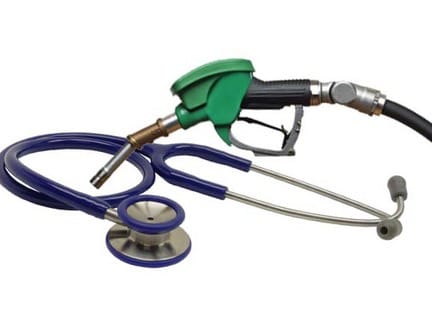The New Journalism: If it bleeds, it probably doesn't lead


In an egregious case of drive-by journalism, an important healthcare story slipped by the general public because it appeared in the nearly unread Saturday, May 13 edition of the New York Times, Sacramento Bee and other major newspapers.
The story reported that major health insurers in California and nationwide were seeking double digit premium increases from state regulators despite:
"barreling into a third year of record profits enriched in recent months by a lingering recessionary mind-set among Americans who are postponing or forgoing medical care," according to the article by Times reporter Reed Abelson.
So if these health care insurers are flush with cash and their shareholders are happy campers, why are they seeking big increases in the monthly premiums that you and I have to pay for healthcare coverage?
The article expalined that the providers:
"defend proposed double-digit increases in the rates they charge, citing a need for protection against any sudden uptick in demand once people have more money to spend on their health, as well as the rising price of care."
The irony is so thick that it's hard to fathom. The industry is protecting its right to remain part of the problem (high costs) by increasing its role in the problem (higher health insurance rates). High insurance premiums are both a major cost factor for healthcare in America as well as a substantive deterrent to purchasing insurance; hence, the logic of raising rates in the face of already high profits seems self-defeating to anyone who isn't an insurance industry shareholder or executive.
The article goes on to demonstrate that this is not a theoretical problem by citing examples of patients who have put off treatments because of high costs, high deductibles or the lack of coverage. One particularly compelling example is California nurse David Welch who "said he was surprised to realize (how long) he had delayed going to the dermatologist, even though he had a history of skin cancer," according to the article. Welch had supported the need to overhaul insurance industry practices under his union contract, and felt he had the medical expertise to effectively control his own treatment, but found the $4,000 deductible impacting his decision-making.
"I underestmated how much that cost would affect my behavior," he said.
Another Californian told the Times that because of increases in gas and grocery prices, she has no spare cash to see a doctor despite feeling sick. She has insurance, but due to high deductibles, she said, "I can't afford to use it."
Health insurance may soon go the way of car insurance, where the system is rigged against your ever using your policy without a punishing rate increase. With health insurance, the punishment is built-in in terms of high deductibles and constantly increasing premium costs.
Fortunately for the general public, when companies feed at the public trough, they can expect scrutiny from the general public through regulation or oversight. Hence, regulatory review of health insurers' rate increases received newspaper coverage. So, too, did oil companies' recent efforts to defend their federal subsidies on oil exploration.
But look at the difference in coverage. The oil executives' excesses were splashed across weekday headlines and nightly newscasts. Yet reports of double-digit premium increases demanded by health insurers wound up in the little-read Saturday editions of a few newspapers. Oil is important. Healthcare is life and death. Our priorities seem badly out of order.



